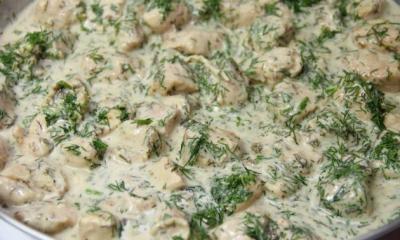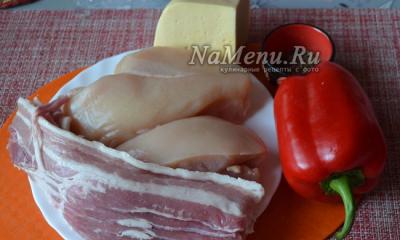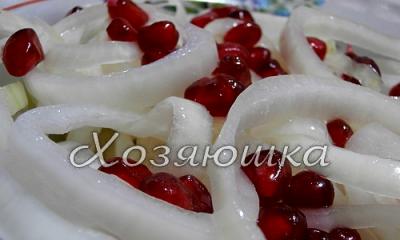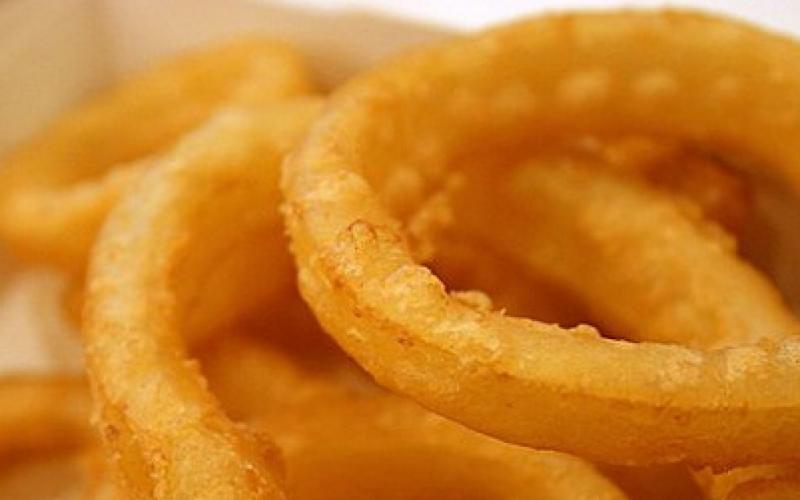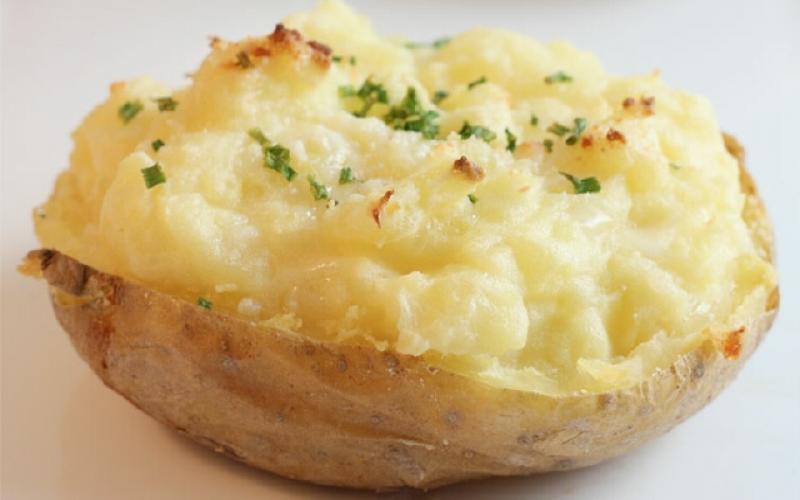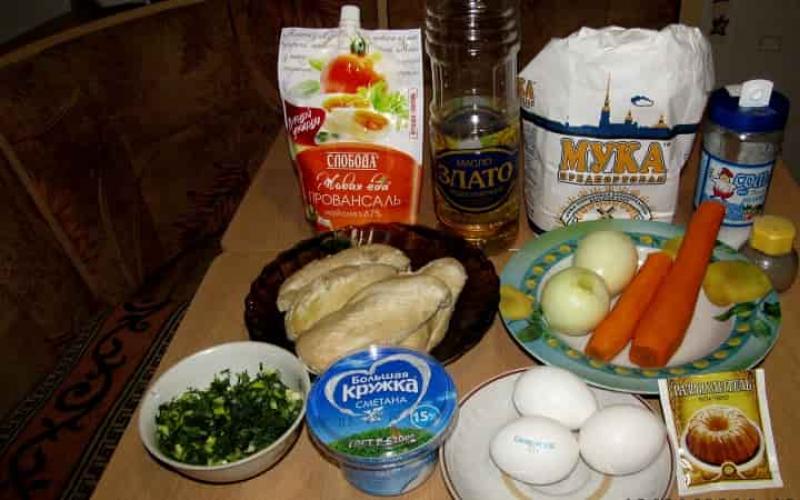In 2020, according to the Orthodox calendar, 9 parental Saturdays are scheduled. About which Saturdays are called parental, why there is such a difference, is described in detail below.
Of course, a person always keeps the memory of deceased ancestors, relatives, friends and just good acquaintances. At the same time, according to the Orthodox tradition, it is customary to especially commemorate the dead for several days a year. All of them are called parent Saturdays.
Indeed, in most cases, dates fall on the sixth day of the week, although this is not always the case. If we talk about the number of parental Saturdays and special days of remembrance of the dead in 2020, then we get the following list:
- Universal Meatfare parental Saturday - celebrate February 22.
- During Lent, 3 parental Saturdays fall at once - at 2, 3 and 4 weeks: this year - March 14, March 21 and March 28.
- And then there is a break associated with Holy Week and the celebration of Easter. The next day - (it is often called parental), which falls on April 28 2020.
- Then they remember all the fallen who fought for the Motherland during the Great Patriotic War, i.e. May 9.
- After that, the dead are commemorated on the day of Trinity Saturday - June 6. This is the second Ecumenical Parental Saturday, which is especially revered.
- Then they salute all the fallen soldiers for the Tsar and the Fatherland - 11 September.
- The last parental Saturday in 2020 is celebrated November 7(it is called Dimitrievskaya).
The dates of these days are closely connected with the most important church events (Lent, Easter and the feast of the Holy). Therefore, all dates are rolling - they change from year to year. The only exception is May 9, which, for obvious reasons, is celebrated only on this date.
WHY SATURDAY
There are several versions of this. At least two of them deserve attention.
First of all, the Bible describes the creation of the world in 6 days, after which God rested from all his working days and called it Saturday (for a long time it was the 7th day of the week, not Sunday). The state of rest harmonizes well with the mood of a person who wants to remember the deceased. There is no place for fuss in such a delicate issue, and it is better to postpone routine matters for later.
And there is also an opinion that the very word Saturday literally means “intercession” (translated from ancient Greek). And in this case, too, everything falls into place: commemorating the dead, people try to intercede for the deceased before God.
That is why it is customary to pray intensely for an immortal soul that has left our world, and also to distribute alms in order to provide spiritual assistance to the deceased.
Universal Parent Saturdays
It is important to know not only what dates the Orthodox commemorate the dead in 2020, but also how parental Saturdays differ from each other. They are divided into three groups - the so-called ecumenical Saturdays fall into the first:
- Myasopustnaya (February 22, 2020) is celebrated exactly one week before the start of Lent. The name is due to the fact that after it comes the so-called Meat Week, when you can eat different dishes from meat.
- Trinity (June 6, 2020) - on the eve of the feast of the Holy Trinity.
These Saturdays are called ecumenical because in all Orthodox churches an ecumenical memorial service is performed in memory of all baptized Christians who left our world. That is, not only parents are commemorated, but all Orthodox in general - our friends, acquaintances, colleagues and others.
Saturdays of Great Lent
During Great Lent, the Church also established three days of commemoration of the dead - these are parental Saturdays of 2, 3 and 4 weeks (weeks). If we say exactly when these days come according to the Orthodox calendar, then in 2020 these are Saturdays:
- March 14th;
- March 21;
- March 28th.
Memorial services are performed in churches, and it is especially important for believers to visit the temple on such days. Priests note that every believer should, if possible, come to church in person. The fact is that the next commemoration will come only after Easter - on Radonitsa.
Private Parent Saturdays
Private include those days when not all the deceased are commemorated, namely the parents or ancestors who fell in battle:
- The main day is Radonitsa (it always falls on the second Tuesday after Easter), which is celebrated this year on April 28, 2020. Therefore, if we say exactly when the parent Saturday in May, this date should be mentioned. Traditionally, Radonitsa is accepted as follows: first visit the church and then go to the cemetery to restore complete order on the grave. But leaving food there, and especially vodka, and even taking alcohol yourself is highly discouraged.
- May 9 is not only Victory Day, but also a day of mourning. We remember all the victims of the monstrous and terrible war. Memorial services are also served in churches, so each person can perform a prayer for the dead and give alms.
- Another private memorial day is 9/11. The history of this date goes back to the distant 18th century, when Empress Catherine the Great issued a decree to commemorate those who died in the Russian-Turkish war. It is customary to pay the last tribute to all Orthodox soldiers.
- Also related to these dates is Demetrius Parental Saturday (November 7, 2020), which is dedicated to the day of memory of the Great Martyr Demetrius of Thessalonica. It is interesting that the tradition has developed since the time of Dmitry Donskoy, who commemorated his fallen comrade after the Battle of Kulikovo in 1380.

Thus, there are enough days in the year so that we can express our respect and remember the deceased parent or other loved one. Of course, commemoration is a very delicate matter, and it often raises many questions.
If there are still no convincing answers, you can simply seek advice from someone you especially trust. Another simple option is to talk to a priest to free yourself from the burden of doubt.
When is the next parent Saturday / nashreporter.com
On the eve of the great holiday, in a simple way - Intercession-2018, believers honor the memory of deceased relatives and friends - on Intercession Parental Saturday-2018.
Later, on November 3, 2018, Dimitriev's parental Saturday is still waiting for us. It is no less significant than.
By the way, Saturdays are called Ecumenical, when they commemorate all, all Christians in general (the main thing is that they are baptized). There are only two of them: the aforementioned Trinity and Myasopustnaya (a week before Lent). On other parental Saturdays, people commemorate only those close to them who have died.
What is Parental Saturday
In Orthodoxy, these are special days for commemoration of the dead. Translated from Greek, Saturday means "intercession", which is why on such days it is customary to remember deceased loved ones.
In Ukraine (as well as in Belarus), such days of commemoration of the dead are called "Grandfathers". These are the days when, according to popular belief, all deceased relatives invisibly gather for a family memorial meal.
Parental Saturday: how to remember
They remember those who have departed into the world with a different prayer and requiem.
Prayer for the dead
Give rest, Lord, to the souls of your departed servants: my parents, relatives, benefactors (their names) and all Orthodox Christians, and forgive them all sins, voluntary and involuntary, and grant them the Kingdom of Heaven. During the church service, Orthodox people commemorate many generations of their deceased ancestors by name.
Parent Saturday: what to do
Believers go to church, ordering services for the dead. On the eve of the liturgy, it is better to submit notes with the names of relatives on a custom magpie. At the same time, notes are submitted only to baptized Orthodox.
If possible, they visit the cemetery to visit the graves of relatives and friends.
But in no case should you visit the cemetery instead of a memorial service - the priests insist that going to the cemetery is more desirable than obligatory, but attending a service, or at least reading memorial prayers at home, is a must.
Indeed, according to them, prayer is much more important for dead people than visiting the grave.
Parental Saturdays are the days of commemoration of the dead. Intercession Saturday is associated with the Feast of the Intercession Holy Mother of God which is celebrated on October 14th. The date of the holiday does not change, but the parental day shifts every year: it usually falls on the last Saturday before the Intercession.
Where does Pokrovskaya Saturday originate?
This is an Orthodox memorial day, which is already more than 400 years old. It was first established by the first Moscow Patriarch. At the end of the distant 16th century, he decided to establish a day to honor the memory of the soldiers who fell during the capture of Kazan.
In general, this holiday is considered folk-Orthodox, because even before its establishment, many Eastern Slavs commemorated the dead on this day. According to church traditions, on parental Saturday it is customary to visit the cemetery and a special service.
Funeral traditions
There are many traditions in Orthodoxy - one of them is the commemoration of the dead. Memorial liturgies and memorial services are held in churches these days, aimed at maintaining the memory of people who left the earthly world, and liberation through prayers from the sins they once committed.

On Intercession Parental Saturday, over time, they began to commemorate not only the fallen soldiers, but also their own deceased relatives - this tradition has been preserved to this day.
On Pokrovsky parental Saturday, according to tradition, their deceased parents are commemorated in the church. People on this day submit notes for the souls of deceased relatives to the priest, and also pray for the repose of their souls in the afterlife.
Those who for some reason could not attend the church can pray for them at home by placing a candle for their dead in front of the icons.
Orthodox, after visiting churches, go to the cemetery, where, according to tradition, they put the graves in order and read prayers for the repose of the souls of the dead.
On the day of remembrance, according to tradition, they arrange modest meals - they put on the table large quantity utensils, and among the food they always serve a ritual dish - kutya (wheat porridge with raisins, nuts, poured with honey) - symbolizing faith in eternal life and resurrection.
The tradition of commemoration of the dead existed even among the pagans - they remembered their loved ones, who left untimely, on special Saturdays.
In ancient times, it was believed that autumn and winter meet for the first time in a year precisely on Pokrovsky Parental Saturday, and the snow that fell at that time was a Divine sign - "cover".
The people believed that on Parental Protection Saturday, the commemoration of the souls of the departed is very important, and in order to please the guests from the other world, they prepared refreshments for them and performed all the necessary rituals.
The dead need to be prayed for
Prayer for the departed is our main and invaluable help to those who have departed to another world. The deceased does not need, by and large, either a coffin, or a grave monument, and even more so a memorial table - all this is just a tribute to traditions, albeit very pious ones. But the eternally living soul of the deceased feels a great need for constant prayer, for she cannot do good deeds herself, with which she would be able to propitiate the Lord.
Prayer at home for loved ones, including the dead, is the duty of every Orthodox. St. Philaret, Metropolitan of Moscow, says this about prayer for the departed: “If the all-pervading Wisdom of God does not forbid praying for the dead, does this not mean that it is still allowed to throw a rope, although not always reliable enough, but sometimes, and maybe often, salvific for souls who have fallen away from the shore of temporal life, but have not reached the eternal home?
Salvatory for those souls who vacillate over the abyss between bodily death and the last judgment of Christ, now rising by faith, now plunging into deeds unworthy of it, now exalted by grace, now being brought down by the remains of damaged nature, now ascending by Divine desire, now becoming entangled in coarse, not yet completely stripped off the clothes of earthly thoughts ... "

The home prayer commemoration of the deceased Christian is very diverse. One should especially pray for the deceased in the first forty days after his death. As already indicated in the section “Reading the Psalter for the Dead”, during this period it is very useful to read about the deceased Psalter, at least one kathisma a day. You can also recommend reading an akathist about the repose of the dead. In general, the Church commands us to pray every day for the deceased parents, relatives, known and benefactors. For this, the following short prayer is included in the number of daily morning prayers:
Prayer for the dead
Give rest, Lord, to the souls of your departed servants: my parents, relatives, benefactors (their names), and all Orthodox Christians, and forgive them all sins, free and involuntary, and grant them the Kingdom of Heaven.
It is more convenient to read the names from the commemorative book - a small book where the names of living and deceased relatives are recorded. There is a pious custom to keep family commemorations, reading which Orthodox people commemorate many generations of their deceased ancestors by name.
What can and cannot be done on Pokrovsky Saturday

On this day, it is customary for Eastern Slavs to visit cemeteries, put the graves in order, preparing them for winter. Also, on Parental Protection Saturday, it was always customary to arrange a plentiful memorial meal, first at the cemetery, and then at home. The Orthodox Church does not approve of the feast at the graves and recommends commemorating loved ones after visiting the church and cemetery, at home.
According to the folk calendar, on this day it is customary to start preparing for winter - the autumn slaughter of cattle began in the villages, and the cattle were finally put in stalls on Pokrov. On this day, the villagers collectively commemorated their loved ones with a plentiful meal and even brought bread from the flour of the new crop to the cemetery in order to “treat” the dead and say goodbye to them until spring.
There was such a saying among the people: "On Pokrov before dinner - summer, after dinner - winter." And although it was directly related to the Feast of the Intercession, it contained a hint of the nature of the Day of Remembrance of the Dead. In villages and villages, grief for loved ones who had left the earthly world was strangely intertwined with entertainment. According to custom, the last festivities fell on Pokrovsky Saturday, and after the Intercession, the time of Pokrovsky evenings and home gatherings began.
Probably, historians believe, this tradition has its roots in the pre-Christian period of the Slavs, since the custom of commemorating the dead - it is known for certain - existed even among our pagan ancestors. They had special Saturdays, on which they remembered their loved ones who had passed away untimely.
In order for our deceased loved ones to feel our support and prayerful help, it is necessary to learn how to honor their eternal memory according to all the rules.
You can not submit memorial notes for the liturgy, as well as order requiem services, magpies and other specific services "for the remembrance of the soul" about unbaptized persons and suicides. All others can be remembered without limitation.
On the day of remembrance, one should behave quietly, modestly, in thoughts of the dead, in prayer for the salvation of their souls. You can and should visit the temple, defend the service.
The most important thing for any deceased is a commemoration at the proskomedia. Thus the sins committed by the deceased are cleansed and redeemed by immersion in the blood of Christ, a great sacrifice. You should keep this in mind and submit a note on the day of commemoration to perform this ceremony.
It is good to pray not only in the temple, but also at home. There are special prayers for the departed, so they need to be read - always with attention, reverence and meekness in the heart.
By folk tradition on such days as Parental Protection Saturday, you should take food to the temple or bake pies, buns, cookies, buy sweets and distribute all these delicacies to friends and strangers, especially children, neighbors. Yes, and by yourself, with your family, it is also useful to commemorate the deceased.
A trip to the cemetery on the day of remembrance of the dead was also mentioned earlier. One can only add that it is better not to leave treats on the grave, as this is contrary to the Christian Orthodox tradition. It is better to take fresh flowers or a special wreath of artificial plants there, clean up, communicate with the deceased in peace, pray for the repose of his soul.
In order not to be mistaken with the number of memorial days for Orthodox Christians in 2018, it is most correct to check the information with church calendar. Their other name is parent Saturdays. However, commemoration days fall not only on weekends. Many of them are on weekdays.
Why Saturday
The name "Parental Saturday" is directly related to the number of Christians on Orthodox calendar commemorate the dead. There are ten such days in 2018, and they are tied to specific significant dates. The most important of them is Radonitsa, which comes after Easter. This holiday has remained since pagan times. Previously, on the day of remembrance, people turned to the memory of their kind, remembering their ancestors. Hence the old name "Rodonitsa".
With the advent of Christianity, Radonitsa acquired a different meaning. From now on, this day is tied to the celebration of Easter, reminiscent of the resurrection of Jesus Christ.
Therefore, visiting the dead in the cemetery, every believer should rejoice, as relatives and friends are destined for eternal life in paradise. For this reason, the name of the memorial day has changed and now takes its root from the word "joy".
Memorial days are called parental Saturdays because of the Jewish roots of the faith. In Hebrew, the name of the weekend is translated as "peace and tranquility." Every week for a day, Jews cancel their business in order to devote themselves to spiritual development. And in Orthodoxy, memorial days began to be established on Saturday, so that the laity had the opportunity to visit their loved ones who had found peace.
In addition, in the Orthodox branch of Christianity, the word "Ecumenical" is added to the name of certain parent Saturdays. It means that on this day it is customary for all believers to cancel their deeds and the whole world to spend several hours to pray for the peace of all those who have gone to another world.
commemoration calendar
In 2018, each believer can independently choose what date to visit the cemetery. Memorial days in the Orthodox calendar are placed as follows:
February 10th. Ecumenical Meatfare Saturday is celebrated before the start of the week dedicated to the Last Judgment and the Second Coming of Christ. In this regard, before the symbolic resurrection, the laity should visit all the dead in the cemetery.
3, 10, 17 March. Parental Saturdays are timed to coincide with the weeks of Lent. This is done so that the dead can also join in the celebration of the miracle of the Resurrection of Christ, even while in heaven.
14th of April. Radonitsa is celebrated as a memorial day, coming after the Orthodox Easter.
26 of May. On the day before the great feast of the Holy Trinity, another Ecumenical parental Saturday comes. This memorial day has been celebrated since the dawn of Christianity, recalling the future Kingdom of God, anticipating the Apostolic Lent.
June 2, August 11, November 22. Before Petrov, Assumption and Christmas fasts, it is supposed to visit the cemetery, commemorating the dead.
the 3rd of November. Dmitrievskaya Saturday or Archangel's strangler is not considered an official funeral day. However, the laity visit the cemetery on this day.
How to commemorate
People got used to the established order of visiting the cemetery, which has become a tradition. On Parental Saturdays, it is customary not only to clean up the graves. As a rule, people put a glass with alcoholic drink and treats that the birds and the poor later pick up. The laity prefer to remember the dead sitting at a table generously laden with dishes and alcohol. After such a “commemoration”, Saturday ends for a person with a restless sleep in a state of strong intoxication.
Several times a year we hear this phrase: "Today is parental." What does this mean and why parental? There are several days a year when the dead are commemorated in a special way. They got their name due to the fact that in appeals to the Lord, people first of all mentioned their dead relatives. Saturdays, which are called parental, 7, their dates change from year to year, as they depend on the dates of other church holidays. The rest of the days of commemoration of the dead, except for Semik, are not moving holidays, their dates are fixed.
Universal meat and meat Saturday in 2018 - February 10
This day in 2018 falls on February 10(7 days before the start of Lent). Why is this memorial Saturday called Ecumenical? The fact is that on this day in Orthodox churches, clergy read prayers for the glory of absolutely all Christians who lived on Earth and underwent the rite of baptism. There are only two ecumenical parental Saturdays in a year - Myasopustnaya and Trinity.
Some call the Meat-Feast Saturday the Small Shrovetide, since the memorial day falls on the Meat-Feast week, that is, the last week before Shrovetide. Special ceremonies are held in churches, prayers are read for all Christians (from Adam to contemporaries), regardless of the region of their residence and burial. Ecumenical memorial services are also held, which are funeral services. People pray that God will repose the souls of the dead and have mercy, releasing them all earthly sins.
According to Slavic customs, the housewives baked pancakes on the winter memorial Saturday, the first of which was placed on the goddess (a shelf with arranged icons), the second on the windowsill. The rest of the pancakes were taken to the graves of relatives, distributed to nuns, beggars, and children. At the same time, they always asked people to eat pancakes in the name of the repose of the souls of specific deceased. The house is cleaned, a funeral dinner is held in the evening, putting a lot of dishes on the table, their number should be odd.
Parental Saturdays in Lent 2018
This year, memorial days fall on the 3rd, 10th and 17th of March. Liturgies are always held in Orthodox churches, praying for the dead on Saturdays, which fall on the 2nd, 3rd and 4th weeks of Lent. All believers have the opportunity not only to light candles, submit repose notes by writing the appropriate names on them, or order a magpie, but also attend the Liturgy in person.
Another noteworthy fact is that throughout Great Lent the Liturgies for the Dead in Orthodox churches are never held except on the three specified Saturdays. After the funeral service, it is customary to go to the cemetery to honor the memory of their deceased relatives and friends in the places of their last refuge. Although the clergy say that after participating in the funeral services, it is not necessary to go to graveyards, since not the bodies, but the souls of the deceased need much more attention.
Radonitsa in 2018 - April 17
They take Easter cakes, krashenka, sweets (most often sweets) and other food consecrated in the church with them to the churchyard. Part of the food is distributed to the poor and children, part is placed on the graves, part is eaten by themselves. However, priests do not recommend arranging grandiose feasts near the graves, because such behavior speaks of disrespect for the world of the dead and, in particular, for their deceased relatives. Otherwise, they rejoice on Radonitsa and organize a traditional funeral dinner.

Trinity Saturday in 2018 - May 26
In 2018, Trinity Saturday, which is also Ecumenical, falls on May 26th. On this day, they attend funeral services held in churches, put candles for the repose of deceased relatives, and go to the cemetery. On Trinity Saturday, it is customary to decorate the graves with fresh greenery, because at this time nature finally wakes up, young foliage and grass appear, early flowers bloom.
Since Saturday is universal, not only relatives are commemorated on this day, but also all Christians who once lived on Earth and left for another world. Some believers who visit churchyards voluntarily decorate unfamiliar graves with green branches and grass. It is also worth noting that it is the Trinity Ecumenical Saturday that is the main day when the memory of all the dead people of the Orthodox faith is honored.
As the clergy explain, any Christian who lived on Earth contributed to the construction of the Kingdom of God, which will certainly be established after the second coming of Christ. It is after this event that all Christians who have ever died will be resurrected, having found an eternal happy existence. In the evening, relatives and friends are called to a memorial meal. During dinner, you can not indulge in idle fun, swear, gossip, slander and empty talk. Also, the church does not recommend taking alcohol.

Dmitrievskaya Saturday in 2018 - November 3
November 3 (the eve of the day of St. Demetrius of Thessalonica) is another day of commemoration of deceased relatives. Special memorial services are held in temples. People pray for the repose of the souls of the departed, asking God to forgive their sinful deeds and grant them the Kingdom of Heaven. Many historians associate the appearance of this Saturday with the Battle of Kulikovo. Dmitry Donskoy, after the victory, suggested that Orthodox dignitaries establish a day of commemoration of their souls in honor of the soldiers who fell in battle. The clergy agreed, naming Saturday in honor of Prince Dmitry.
In ancient times, Dmitriev's Saturday was considered the day when you need to say goodbye to autumn and meet winter. If before the onset of the Intercession they did not have time to thoroughly prepare for severe frosts, it was Dmitriev's Saturday that was considered the final stage of preparation for winter.
On this memorial day, a general cleaning of residential premises and household plots was carried out. In the morning they attended a funeral service, in the afternoon they went to the churchyard to visit their deceased relatives. In the evening they had dinner. The tables were covered with new linen tablecloths. white color. They exhibited traditional funeral dishes (pies, kutya, pancakes with various fillings, uzvar).

Other memorial days
Commemoration of those who died in WWII
The date of this holiday is not movable and always falls on May 9th. The memory of the soldiers who fulfilled their duty to the people and the Motherland in 1941-1945, having laid down their heads on the fields of bloody battles, is revered in Orthodoxy in a special way. The clergy note that faith in the Lord helped in overcoming difficulties, strengthened the spirit of the soldiers of the Red Army, brightened up the hardships of their military everyday life, inspiring and raising them to exploits in the name of the Fatherland.

In all Orthodox churches on May 9, funeral Liturgies are held, and then memorial services for the dead soldiers. In the morning, in honor of Victory Day, parades are tripled, after which a solemn laying of wreaths and flowers is carried out at monuments, mass graves and eternal fire. All day long, people honor the veterans of this bloody war, presenting them with gifts and arranging concerts for them. Teachers of schools and universities conduct classes during which they tell students about the heroes of the war, their courage and exploits.
In honor of the end of the war in 1945, the largest and most spectacular fireworks display at that time was given: out of a thousand artillery pieces, 30 volleys were fired. And to this day on the squares you can admire the stunning beauty of fireworks. Volunteers distribute to passers-by small symbols of the holiday - St. George's ribbons, with which people decorate cars, trees, houses and their clothes. These ribbons embody not only the memory of those who gave their lives on the battlefields, but also a strong bond between generations.
Semik
The day falls on May 24th. Every year its date changes depending on the date of Easter. Semik is always celebrated on the seventh Thursday after the Resurrection of Christ. Hence, in fact, its name came from. Our ancestors believed that this holiday marks the meeting of the summer period, as well as farewell to the spring season.
The permanent symbol of Semik is considered to be a birch, on the branches of which young foliage flaunts. On the eve of the holiday, people chose a birch tree (preferably the one that grew alone in the field) and dressed up, tying ribbons on its branches. It was this ceremony that allowed the tree to transfer all its strength to the field and young grass, providing people with a rich harvest and contributing to their personal well-being, health, and prosperity.
According to ancient traditions, people go to the cemetery in the morning to visit their deceased relatives. They also commemorated those who were killed and those who died or died a violent death, being in the places of poor women and in their wretched dwellings. By mass, people gathered in the temples, who brought with them fresh plants, twigs of young trees, flowers, young grass. The floors of the temples were covered with the brought greenery. From the second half of the day, festivities and general fun began, in the evening festive tables were laid.
Official Day of Remembrance and Sorrow
The date of this tragic day of memory and sorrow (June 22) is also fixed. Day of Nazi Germany's attack on the USSR. Every year people lay flowers at the monuments and graves of unknown soldiers who died in the period 1941-1945. The memory of the fanaticism that the soldiers of the 3rd Reich repaired is still fresh. Unfortunately, there are few veterans and eyewitnesses of these terrible events.

Surely, in every family there are relatives who died in this war - fathers, grandfathers, great-grandfathers ... The inhuman torments experienced by the Soviet people during the Second World War will be immortalized in the hearts of future generations. It is probably impossible to forget about this terrible page in the history of our people. In many countries, it is customary to fly the national flag at half-mast on this day. Everyone remembers the harsh period of the war and the people who, at the cost of their own lives, led the country to victory.
Very often, on June 22, films dedicated to the heroism of the Red Army and the Soviet people as a whole are released. Evenings in memory of the victims of the Second World War are also held. During these evenings, it is customary to honor the memory of the fallen in battles with a minute of silence, which is a symbol of universal mourning. All those present fall silent, the lights are turned off and many lights from lit candles and lighters flash in the darkness. On June 22, it is customary to mourn not only their relatives who perished in the millstones of that horrific war, but also all the soldiers who showed incredible courage and laid down their lives for the sake of the peaceful life of their descendants.
Memory of Orthodox Warriors
The Day of Remembrance for the Fallen Soldiers of the Orthodox Faith falls on September 11th. On the same day, Christians also celebrate a great church holiday called the Beheading of the Prophet, better known as the Beheading of the Forerunner or Head-cutting. According to Christian canons, on September 11, it is not necessary to visit cemeteries and funeral services that are held in churches. However, it is important to commemorate the dead Orthodox soldiers with kind thoughts and words, especially while sitting at the festive table.
During the evening funeral meal, consume a large number of alcohol-containing drinks, dancing and singing songs are not allowed. This is due not only to disrespect for the fallen Christian soldiers, but also to the fact that the day coincides with the day of the great church holiday - the Beheading of the Forerunner. In this regard, round-shaped vegetables and fruits are not placed on the memorial table, and guests do not use cutting cutlery. You can not serve food on dishes, since according to the giving, the severed head of John the Baptist was brought to Herod on a platter.


